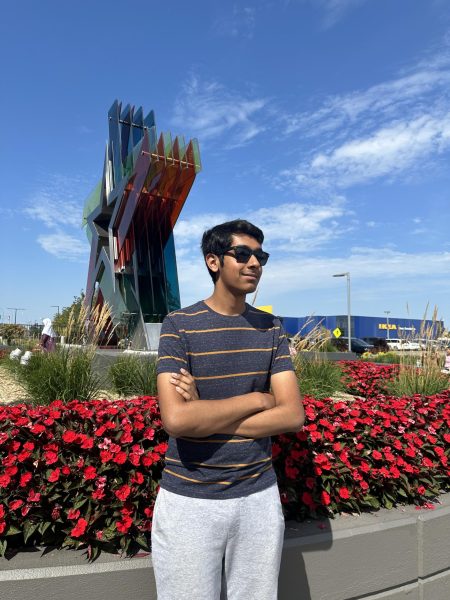In March of 2003 at the height of the Iraq War, American fighter jets departed from Qatar’s Al Udeid Air Base situated in Doha to fight a brutal war against Saddam Hussain’s dictatorship. Yet, some of the most critical views on the invasion lay only a few miles away.
This was not the only discrepancy. The last country one would expect to lead the charge against fossil fuels would be coming from one of the biggest producers of liquified natural gas (LNG) in the world. Yet, Qatar spends its billions of dollars earned from LNG raising the alarm bells that climate change is going to be a disaster.
Qatar is of the most brutal and repressive absolute monarchies in the world, with no room for protests or indignation. In fact, in 2012, one person was sent to life in prison after writing a poem that insulted the royal family.
And yet, Al Jazeera represents the pro-democracy movement, gives a voice to those who don’t have one and promotes protests and demonstrations. In a country coming with some of the worst press freedom in the world, having this kind business model is puzzling. Yet, Al Jazeera exists.
Naturally throughout Qatar’s history, it has had a very close connection with its other oil-rich neighbors; it has a similar language, religion, culture and business model. However, when Iraq invaded Kuwait, Qatar watched with horror as a nation got ripped apart by its much larger neighbor.
Fearing that a similar interaction could happen between them and Saudi Arabia, Qatar has always sought to distance themselves from its neighbors as much as possible, and distance they did.
Ever since Qatar got rich in natural gas in the 90’s, its foreign policy could only be described as trying to be everything at once. Whatever the conflict, discussion, or debate, Qatar has always positioned itself as a meaningful negotiator, oftentimes abandoning all logical sense in the process.
For example, despite the US having a major air base in Doha, Qatar has hosted about 100 Taliban fighters at its own expense. Saddam Hussein’s wife, a controversial Indian artist in exile, and the President of the self-proclaimed republic of Chechnya were all offered residence in Doha. Additionally, it became one of the first Arab states to establish relations with Israel in 1996, despite most of the Arab world siding against Israel in favor of Palestine.
Around the same time, the BBC had established a 24/7 Arabic station in Saudi Arabia trying to reach a new audience of Arabic speakers. However, after the BBC filmed a documentary that was critical of the Saudi royal family, the Saudi government cut all funding to the project.
After seeing this, the Qatari government sensed an opportunity. It realized that there were hundreds of top-of-the-line Arabic professional BBC journalists who were waiting to be hired. In an instant, Qatar hired 100 of the nation’s best and brightest reporters to found a new organization called Al Jazeera.
The Arab world at the time was restricted to 2 options in getting their news. Most Arabic news stations at the time were seen as outright propaganda, spewing out nonsensical and nonessential information, similar to Russia’s state-run RT or China’s CCTN. While they could get their news from western sources, it was seen as unfamiliar, given its American or British perspective.
Al Jazeera, on the other hand, was seen as shockingly real. For the first time, Arab speakers were able to get objective, hands-on information that they personally cared about. In a poll, Arabs ranked Al Jazeera as being their first or second choice source of news. Additionally, Al Jazeera is one of the best news sources to receive high quality news on recent events like HAMAS’s attack on Israel.
However, while Al Jazeera is one of the best news corporations in the world for reporting international news, the lack of coverage on the recent FIFA World Cup has revealed Qatar’s singular red line. Its lack of coverage on news like migrant workers’ conditions in Qatar coming from countries like India or Bangladesh shows that even news companies like Al Jazeera are subject to censorship.
However, Junior Andres Bravo does not seem deterred by the potential source of media bias Al Jazeera could bring. “When I do research on a controversial topic, I have to make sure that it is backed up by at least 3 or 4 sources before I can trust them,” he commented. This suggests that Bravo would consider Al Jazeera as reliable if supported by other reputable sources.
It would be reasonable to assume then, that intervention from the government on Al Jazeera on foreign topics would prove irresistible, but the government’s reluctance to censor topics outside of the government is one of the few cases where the goals of Al Jazeera align with the goals of the public.
The more Al Jazeera is seen as credible, trustworthy, and reliable, the better it fulfills the original goal of its creation: Keeping the spotlight on Qatar. It is one of the many ways that countries like Qatar are seen on the global stage, with its news organization keeping Qatar in the forefront of discussion.










Suleman • Mar 3, 2024 at 6:14 pm
Aditya, I also agree. Considering they are a strict muslim nation, it would be expected that Qatar would only broadcast conservative takes on issues. Also, prehaps not realted, but Al Jazeera is also something that other arab countries hold against Qatar. Countries like the UAE and saudi arabia. Partially due to how these countries are exposed, but also due to their liberal takes which may go against their way of life.